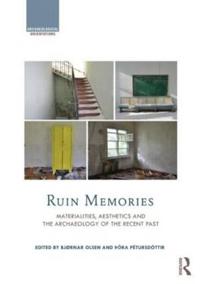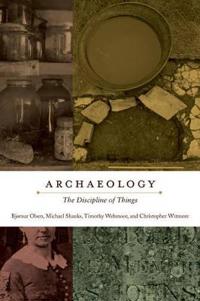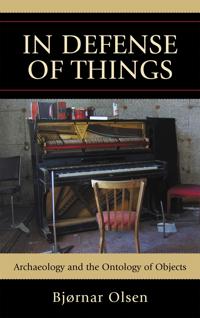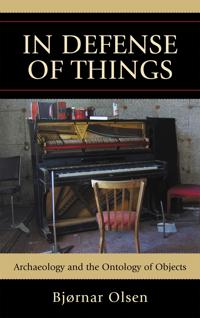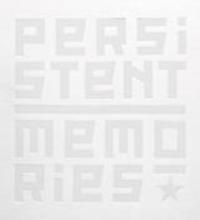Ruin Memories (Inbunden)
avBjornar Olsen
ISBN: 9780415523622 - UTGIVEN: 2014-04Since the nineteenth century, mass-production, consumerism and cycles of material replacement have accelerated; increasingly larger amounts of things are increasingly victimized rapidly and made redundant. At the same time, processes of destruction have immensely intensified, although largely overlo[...]
Archaeology (Inbunden)
avBjornar Olsen, Michael Shanks, Timothy Webmoor
ISBN: 9780520274167 - UTGIVEN: 201211Archaeology has always been marked by its particular care, obligation, and loyalty to things. While archaeologists may not share similar perspectives or practices, they find common ground in their concern for objects monumental and mundane. This book considers the myriad ways that archaeologists eng[...]
Archaeology (Pocket)
avBjornar Olsen, Michael Shanks, Timothy Webmoor
ISBN: 9780520274174 - UTGIVEN: 201211Archaeology has always been marked by its particular care, obligation, and loyalty to things. While archaeologists may not share similar perspectives or practices, they find common ground in their concern for objects monumental and mundane. This book considers the myriad ways that archaeologists eng[...]
In Defense of Things: Archaeology and the Ontology of Objects (Inbunden)
avBjornar Olsen
ISBN: 9780759119307 - UTGIVEN: 201007In much recent thinking, social and cultural realms are thought of as existing prior to or detached from things, materiality, and landscape. It is often assumed, for example, that things are entirely 'constructed' by social or cultural perceptions and have no existence in and of themselves. Bjornar [...]
In Defense of Things (Häftad)
avBjornar Olsen
ISBN: 9780759119314 - UTGIVEN: 201303In much recent thinking, social and cultural realms are thought of as existing prior to-or detached from-things, materiality, and landscape. It is often assumed, for example, that things are entirely 'constructed' by social or cultural perceptions and have no existence in and of themselves. Bjornar [...]
Persistent Memories (Inbunden)
avElin Andreassen, Hein B. Bjerck, Bjornar Olsen
ISBN: 9788251924368 - UTGIVEN: 201007In 1998 the Russian Arctic Coal Company decided to end its more than 50 years of continuous activity in Pyramiden in the High Arctic archipelago of Norwegian Svalbard. A remarkably abrupt abandonment left behind a mining town devoid of humans but still filled with all stuff constituting a modern ind[...]

